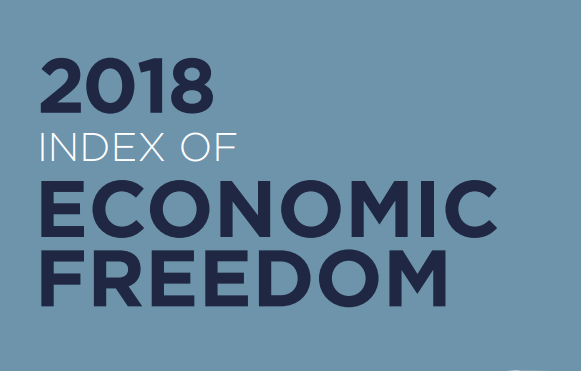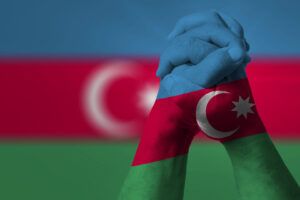About the Index of Economic Freedom 2018
The principles of economic freedom are measured in the Index of Economic Freedom, an annual guide published by The Heritage Foundation, Washington’s No. 1 think tank.
For over twenty years the Index has delivered thoughtful analysis in a clear, friendly, and straight-forward format. The Index covers 12 freedoms – from property rights to financial freedom – in 186 countries.
The 2018 Index measures economic freedom based on 12 quantitative and qualitative factors, grouped into four broad categories, or pillars, of economic freedom:
- Rule of Law (property rights, government integrity, judicial effectiveness)
- Government Size (government spending, tax burden, fiscal health)
- Regulatory Efficiency (business freedom, labor freedom, monetary freedom)
- Open Markets (trade freedom, investment freedom, financial freedom)
Each of the twelve economic freedoms within these categories is graded on a scale of 0 to 100. A country’s overall score is derived by averaging these twelve economic freedoms, with equal weight being given to each.
| Rank | Country | Overall | Change |
| Mostly free | |||
| 7 | Estonia | 78.8 | -0.03 |
| 16 | Georgia | 76.2 | +0.2 |
| 19 | Lithuania | 75.3 | -0.5 |
| 28 | Latvia | 73.6 | -1.2 |
| Moderately free | |||
| 67 | Azerbaijan | 64.3 | +0.7 |
| 78 | Kyrgyzstan | 62.8 | +1.7 |
| 41 | Kazakhstan | 69.1 | +0.1 |
| 44 | Armenia | 68.7 | -1.6 |
| Mostly unfree | |||
| 105 | Moldova | 58.4 | +0.4 |
| 106 | Tajikistan | 58.3 | +0.1 |
| 108 | Belarus | 58.1 | -0.5 |
| 150 | Ukraine | 51.9 | +3.8 |
| 152 | Uzbekistan | 51.5 | -0.8 |
| Repressed | |||
| 169 | Turkmenistan | 47.1 | -0.3 |




